-
ORIGINAL ARTICLE11-11-2022
Analysis of midwives’ situation and the need to measure their workloads
Revista Brasileira de Enfermagem. 2022;75:e20210920
Abstract
ORIGINAL ARTICLEAnalysis of midwives’ situation and the need to measure their workloads
Revista Brasileira de Enfermagem. 2022;75:e20210920
DOI 10.1590/0034-7167-2021-0920
Views0See moreABSTRACT
Objective:
to analyze midwives’ employment situation of midwives and detect their workload measurement needs.
Methods:
a mixed methodology (quantitative and qualitative), observational, descriptive and cross-sectional study. Two phases were carried out. The first methodological phase consisted of conducting semi-structured individual interviews. The second methodological phase analyzed the Nursing Intervention Classification (NIC) interventions that midwives perform in the labor room during daily practice.
Results:
90.3% of midwives have work overload, since for 80.6% the midwife-pregnant mother ratio is not well established, since the mean execution time of a Nursing Intervention Classification (NIC) intervention is 20 minutes. For this reason, 100% of the sample considers the development of workload measurement tools to be highly useful.
Conclusions:
the need to generate an instrument that considers the diversity of Nursing Intervention Classification (NIC) interventions that develop within the labor room is ratified.
-
ORIGINAL ARTICLE11-10-2022
Nursing care for the Amazon population: knowledge production and human resource development
Revista Brasileira de Enfermagem. 2022;75:e20201084
Abstract
ORIGINAL ARTICLENursing care for the Amazon population: knowledge production and human resource development
Revista Brasileira de Enfermagem. 2022;75:e20201084
DOI 10.1590/0034-7167-2020-1084
Views0See moreABSTRACT
Objectives:
to analyze knowledge production adherence from a master’s course in nursing in the Amazon to care and health demands in the region, with an emphasis on neglected tropical diseases and traditional populations in the Amazon.
Methods:
a descriptive study, with a quantitative approach and documentary basis, analyzing dissertations defended in a Graduate Program in Nursing at the Universidade do Estado do Pará in association with the Universidade Federal do Amazonas, from 2012-2019. A descriptive statistical analysis was performed.
Results:
of the 105 dissertations analyzed, 30 (28.6%) were related to neglected tropical diseases. Of these, 11 (10.5%) dealt with Chagas disease, leishmaniasis, tuberculosis, malaria, and leprosy. Traditional populations in the Amazon participated in only 11 (10.5%) studies.
Conclusions:
knowledge production in a master’s course has adherence to care and health demands in the region; however, it needs to enhance its production to strengthen its identity.
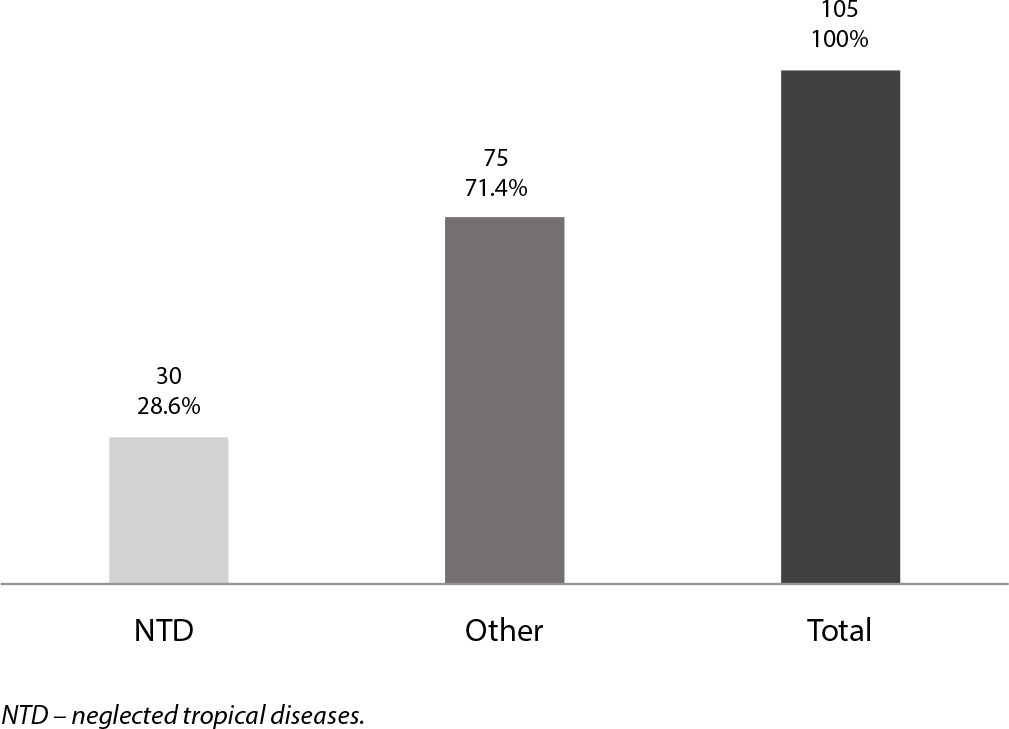
-
ORIGINAL ARTICLE11-10-2022
Content validation to support the monitoring of disclosure of HIV diagnosis in childhood
Revista Brasileira de Enfermagem. 2022;75:e20210027
Abstract
ORIGINAL ARTICLEContent validation to support the monitoring of disclosure of HIV diagnosis in childhood
Revista Brasileira de Enfermagem. 2022;75:e20210027
DOI 10.1590/0034-7167-2021-0027
Views0See moreABSTRACT
Objectives:
to create and validate the content of a guide for monitoring the communication of the HIV diagnosis in childhood.
Methods:
methodological study, with a design guided by the Knowledge-to-Action (KTA) Framework, supported by a participatory approach. The guide’s content was structured according to the communication elements proposed by Lasswel from review studies.
Results:
the content was validated by 26 experts from nursing, medicine, psychology and pedagogy, using a Likert-type scale for relevance, clarity and precision. Data collection took place online and achieved a Content Validity Index of 0.94.
Conclusions:
the guide can contribute to the practice of professionals who care for children living with HIV, to support the family in communication and to the child’s right to know their diagnosis. For further research, it is recommended to create and validate the face of the technology in order to implement it.

-
ORIGINAL ARTICLE11-10-2022
Healthcare: action research with trans people living on the streets
Revista Brasileira de Enfermagem. 2022;75:e20210016
Abstract
ORIGINAL ARTICLEHealthcare: action research with trans people living on the streets
Revista Brasileira de Enfermagem. 2022;75:e20210016
DOI 10.1590/0034-7167-2021-0016
Views0See moreABSTRACT
Objectives:
to analyze the representations of healthcare provided to trans people living on the streets.
Methods:
ten women (three trans) and three cisgender men participated in this action research. Popular health education groups, focus groups, seminars and interviews were held, the data of which were organized in the software Nvivo®, submitted to content analysis and interpreted in the light of intersectionality theory.
Results:
healthcare was represented by the technical, relational, structural and citizenship dimensions. The relationship between gender and poverty determines the specific health needs of trans people living on the streets.
Final Considerations:
the need to expand conceptions and practices on healthcare to meet the specific health needs of trans people living on the streets was evidenced. Nursing, with competence and cultural sensitivity, can contribute to positive health outcomes and, consequently, break with the logic of exclusion, illness and poverty.
-
ORIGINAL ARTICLE11-10-2022
Effect of educational video on newborn care for the knowledge of pregnant and postpartum women and their families
Revista Brasileira de Enfermagem. 2022;75:e20201371
Abstract
ORIGINAL ARTICLEEffect of educational video on newborn care for the knowledge of pregnant and postpartum women and their families
Revista Brasileira de Enfermagem. 2022;75:e20201371
DOI 10.1590/0034-7167-2020-1371
Views0See moreABSTRACT
Objectives:
to evaluate the effect of educational video on newborn care to increase the knowledge of pregnant, postpartum, and family members.
Methods:
a quasi-experimental study, with pre-intervention and post-intervention evaluation with a single group. Fifty-eight pregnant, postpartum, and family members treated in basic health units and a hospital in Ceará, Brazil, participated. The study used the McNemar and binomial tests for the analysis.
Results:
after the intervention, there was an increase in the frequency of hits, from 70.82% to 92.97%. Most of the questions presented a significant increase of hits (p < 0.05) with an emphasis on sleeping position, drying of clothes, free demand for breastfeeding, and things to avoid (such as accessories in the sleeping place and talc in diaper change).
Conclusions:
the educational video was effective to participants in acquiring knowledge on the care of newborns and can assist in health education activities carried out by nurses.
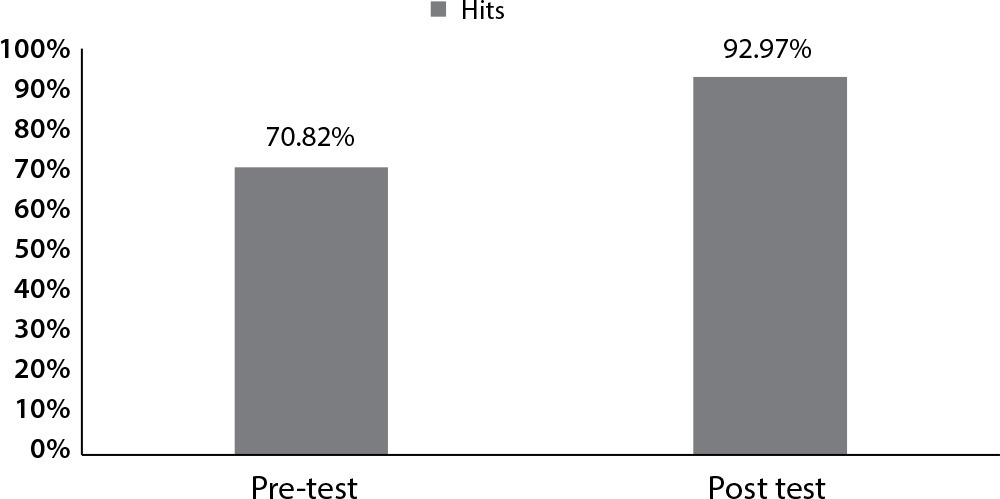
-
ORIGINAL ARTICLE11-10-2022
Home care for children with gastrostomy
Revista Brasileira de Enfermagem. 2022;75:e20200699
Abstract
ORIGINAL ARTICLEHome care for children with gastrostomy
Revista Brasileira de Enfermagem. 2022;75:e20200699
DOI 10.1590/0034-7167-2020-0699
Views0See moreABSTRACT
Objectives:
to describe home care practices performed by family members for maintaining the life of children with gastrostomy.
Methods:
qualitative research using the Sensitive Creative method, with the Criatividade e Sensibilidade Corpo Saber [Corpo Saber Creativity and Sensitivity] dynamics. The participation included ten family caregivers of children with gastrostomy. The outpatient clinic of a federal hospital in Rio de Janeiro was the setting. Lexical analysis was used through the IRaMuTeQ® software.
Results:
Theme 1, entitled “The care for maintaining life performed by family members of children with gastrostomy at home”, was analyzed, comprising three classes: “The gastrostomy tube home care routine”; “The care with the gastrostomy/stoma”; and “Food and medication home care routine of children with gastrostomy”.
Final Considerations:
family caregivers used strategies to maintain the device and acquired new knowledge in this field, and in nursing competence, regarding stoma care, food administration, medication, and syringes.

-
ORIGINAL ARTICLE11-10-2022
Religious/spiritual coping in informal caregivers of children with cleft lip and/or dysphagic palate
Revista Brasileira de Enfermagem. 2022;75:e20201300
Abstract
ORIGINAL ARTICLEReligious/spiritual coping in informal caregivers of children with cleft lip and/or dysphagic palate
Revista Brasileira de Enfermagem. 2022;75:e20201300
DOI 10.1590/0034-7167-2020-1300
Views0See moreABSTRACT
Objectives:
to identify the use of religious/spiritual coping in informal caregivers of children with cleft lip and/or palate, dysphagic, powered exclusively by probe.
Methods:
descriptive and cross-sectional study, including 30 informal caregivers. For data collection, a Sociodemographic Questionnaire and the Brief Religious/Spiritual Coping Scale were used. For statistical analysis, ANOVA, Student’s t and Spearman’s correlation tests were used, with a significance level of 5%.
Results:
the use of religious/spiritual coping was high among participants (mean=3.71), with a predominance of positive (mean=3.30) compared to negative (mean=1.88). It was evident that the greater the reported importance of religiosity/spirituality in the participants’ lives, the greater the positive coping (p=0.001).
Conclusions:
informal caregivers used positive religious/spiritual coping as a way of coping with care demands related to the child’s health condition. These findings point to the importance of including spirituality/religiosity as health indicators.
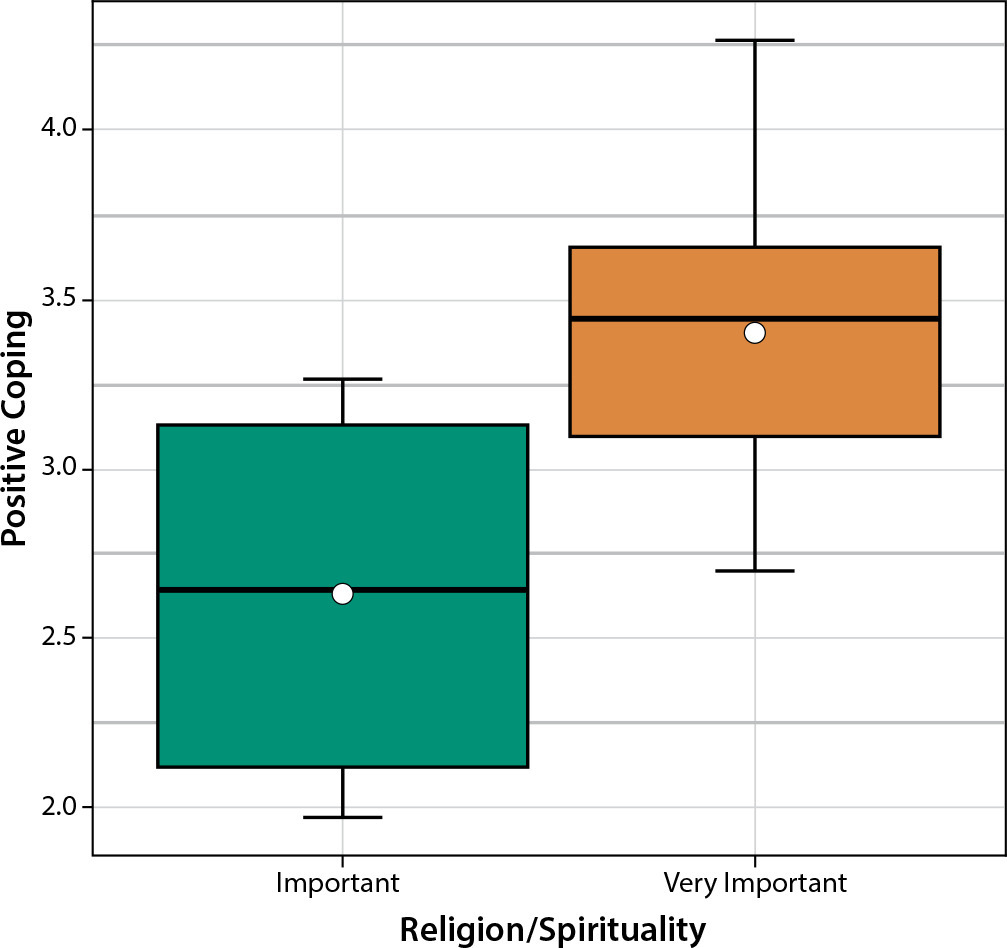
-
ERRATUM11-08-2022
ERRATUM
Revista Brasileira de Enfermagem. 2022;75(1):e2022n1e02
Abstract
ERRATUMERRATUM
Revista Brasileira de Enfermagem. 2022;75(1):e2022n1e02
DOI 10.1590/0034-7167.20227501e02
Views0Article “Hemodialysis in the context of COVID-19: care, nursing protagonism and quality”, with number of DOI: https://doi.org/10.1590/0034-7167-2020-1077, published in the journal Revista Brasileira de Enfermagem, 75(Suppl 1): e20201077, on the front page:Figures 4 and 5 are in reverse order.[…]See more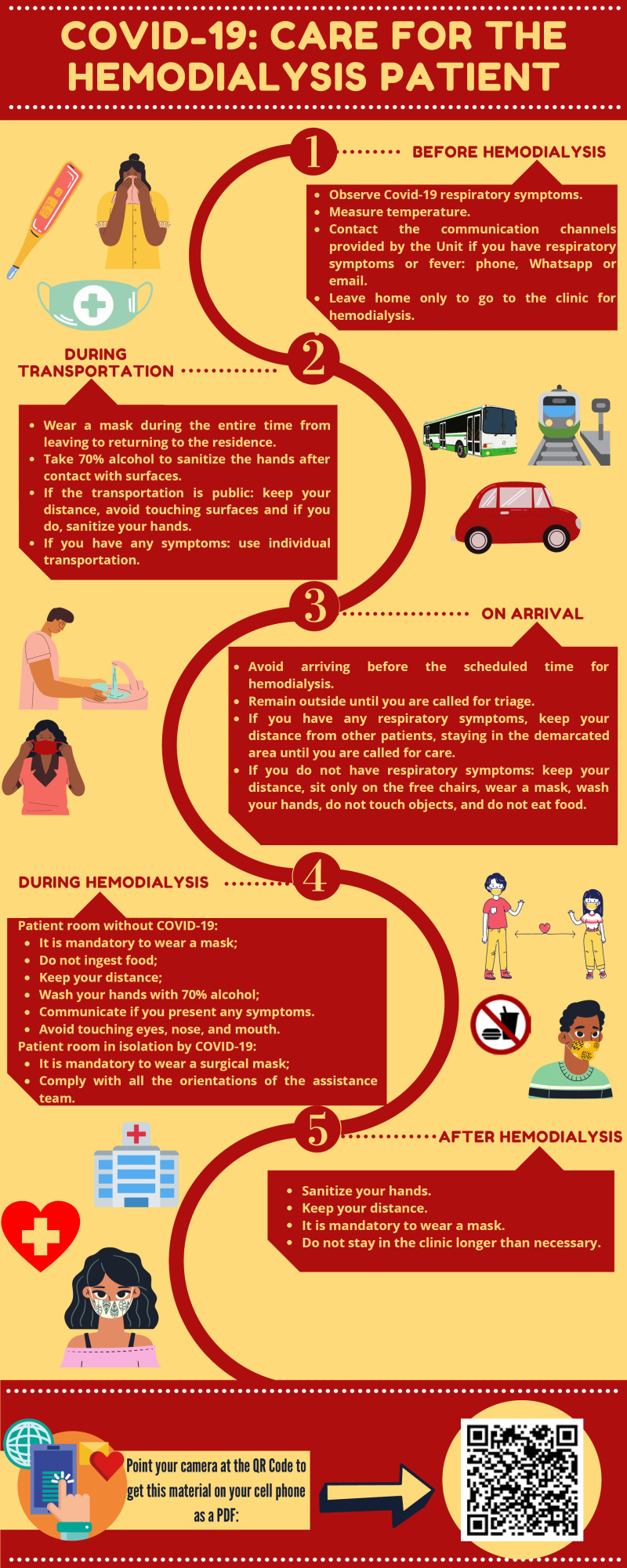
-
ORIGINAL ARTICLE12-16-2024
Narratives of sex workers: intimate partner violence and coping strategies
Revista Brasileira de Enfermagem. 2024;77(6):e20240180
Abstract
ORIGINAL ARTICLENarratives of sex workers: intimate partner violence and coping strategies
Revista Brasileira de Enfermagem. 2024;77(6):e20240180
DOI 10.1590/0034-7167-2024-0180
Views0See moreABSTRACT
Objectives:
to understand the narratives of sex workers about violence suffered by intimate partners and their coping strategies.
Methods:
qualitative research, focused on thematic oral history, carried out with six sex workers in southern Brazil, who responded to in-depth interviews using a flexible script. Thematic content analysis was used.
Results:
the study included cisgender women who self-identified as half black and half white. Most had children and were separated. They reported abusive relationships by their intimate partners, with emphasis on verbal, psychological, financial, and physical violence and attempted femicide. Such violence resulted in coping strategies, such as avoiding emotional bonds and maintaining a discreet life.
Final Considerations:
intimate partner violence is prevalent among participants, leading them to adopt strategies to preserve their safety and well-being, highlighting the need for public policies that meet their particularities and guarantee protection.
-
ORIGINAL ARTICLE12-16-2024
Software for the care of people with cardiovascular risk: construction and evidence of validity
Revista Brasileira de Enfermagem. 2024;77(6):e20240276
Abstract
ORIGINAL ARTICLESoftware for the care of people with cardiovascular risk: construction and evidence of validity
Revista Brasileira de Enfermagem. 2024;77(6):e20240276
DOI 10.1590/0034-7167-2024-0276
Views0See moreABSTRACT
Objectives:
to build and validate software for the care of people with cardiovascular risk.
Methods:
a methodological study, applied to software development, anchored in a nursing theory and classification system, in three stages: 1) requirements engineering; 2) software architecture and coding; and 3) testing and content validity by 12 experts in computer science, with a Content Validity Ratio score.
Results:
called e-TEORISC, in software format, for nursing care for people with cardiovascular risk, online and offline, containing a database linked to the Nursing Process stages. Experts considered that the attributes of functional suitability, performance efficiency, reliability, maintainability, usability, safety and portability obtained desirable scores.
Conclusions:
e-TEORISC has evidence of validity to instrumentalize care for people at cardiovascular risk, with potential for technology transfer to the Brazilian Health System.

-
ORIGINAL ARTICLE08-30-2024
Meanings attributed to changes experienced by individuals after COVID-19 hospitalization
Revista Brasileira de Enfermagem. 2024;77:e20230122
Abstract
ORIGINAL ARTICLEMeanings attributed to changes experienced by individuals after COVID-19 hospitalization
Revista Brasileira de Enfermagem. 2024;77:e20230122
DOI 10.1590/0034-7167-2023-0122
Views0See moreABSTRACT
Objectives:
to understand the meanings attributed to the experiences of individuals after hospitalization for COVID-19.
Methods:
qualitative study, with a theoretical framework based on Symbolic Interactionism and a methodological approach grounded in Grounded Theory. Nineteen participants who had moderate and severe forms of COVID-19 after hospitalization were interviewed. Data collection took place between April and November 2021 through online interviews, and the data were analyzed using initial and focused coding in the MAXQDA software.
Results:
the data illustrate new meanings attributed to different aspects of life after hospitalization, including relationships with others, the environment, physical and mental health, finances, identity, and interactions with a new social reality.
Conclusions:
the meanings are intrinsically linked to the value of interpersonal relationships, the perception of their impact, and the consequences after hospitalization. This allows professionals to understand the importance of this information to improve care and prepare for future epidemics.

-
ORIGINAL ARTICLE08-30-2024
Patient safety culture in times of the COVID-19 pandemic: a cross-sectional study in a hospital
Revista Brasileira de Enfermagem. 2024;77:e20230187
Abstract
ORIGINAL ARTICLEPatient safety culture in times of the COVID-19 pandemic: a cross-sectional study in a hospital
Revista Brasileira de Enfermagem. 2024;77:e20230187
DOI 10.1590/0034-7167-2023-0187
Views0See moreABSTRACT
Objectives:
to assess patient safety culture during the COVID-19 pandemic and identify the dimensions that need to be improved in hospital settings and which sector, open or closed, direct or indirect care, exhibits a higher level of safety culture.
Methods:
a descriptive and cross-sectional study. The validated version for Brazil of the Hospital Survey on Patient Safety Culture instrument was applied to assess patient safety culture. Those dimensions with 75% positive responses were considered strengthened.
Results:
all dimensions presented results lower than 75% of positive responses. Closed sectors showed a stronger safety culture compared to open ones. Indirect care sectors had a low general perception of patient safety when compared to direct care sectors.
Conclusions:
with the pandemic, points of weakness became even more evident, requiring attention and incisive interventions from the institution’s leaders.

-
REVIEW08-30-2024
Educational actions conducted during the pandemic with primary health care professionals: a scoping review
Revista Brasileira de Enfermagem. 2024;77:e20230352
Abstract
REVIEWEducational actions conducted during the pandemic with primary health care professionals: a scoping review
Revista Brasileira de Enfermagem. 2024;77:e20230352
DOI 10.1590/0034-7167-2023-0352
Views0See moreABSTRACT
Objectives:
to map the educational actions conducted with primary health care professionals during the COVID-19 pandemic.
Methods:
a scoping review conducted in August 2023, which covered databases such as CINAHL, Medline, LILACS, IBECS, BDENF, and Web of Science. In total, 32 publications were analyzed through content analysis.
Results:
the primary beneficiaries of the educational actions included 69% physicians, 56% nurses, 25% pharmacists, 13% social workers and dentists, 9% psychologists, community health agents, and laboratory professionals, and 6% nursing technicians, nutritionists, and physical educators. The predominant educational interventions were training sessions (mentioned in 19 publications), followed by Continuing Health Education (10 publications) and Continuing Education (three publications).
Final Considerations:
the educational interventions demonstrated positive impacts on professional practice, particularly the Continuing Health Education actions, which were notable for stimulating critical problem-solving among professionals.

-
REVIEW08-30-2024
Impact of financial toxicity on adults with cancer during the COVID-19 pandemic: an integrative review
Revista Brasileira de Enfermagem. 2024;77:e20240078
Abstract
REVIEWImpact of financial toxicity on adults with cancer during the COVID-19 pandemic: an integrative review
Revista Brasileira de Enfermagem. 2024;77:e20240078
DOI 10.1590/0034-7167-2024-0078
Views0See moreABSTRACT
Objectives:
to identify the repercussions of financial toxicity on the lives of adult cancer patients during the COVID-19 pandemic.
Methods:
an integrative review was conducted using the PubMed, Web of Science, Scopus, and Embase databases, as well as the Virtual Health Library portal, in March 2023.
Results:
out of 62 studies found, 13 were included for analysis. The primary repercussions of financial toxicity included difficulties in covering basic expenses such as food, housing, medication, transportation, and internet access; increased anxiety and concerns related to health and financial situations; reduction or absence of income; challenges in obtaining treatment or accessing healthcare services; rising expenses; and telemedicine as a less burdensome alternative.
Conclusions:
the pandemic has exacerbated financial toxicity; therefore, healthcare teams must recognize it as an adverse event of oncological treatment and understand its potential to affect various aspects of patients’ lives.

-
03-08-2024
Nursing as a player in tackling vaccine hesitancy and refusal
Revista Brasileira de Enfermagem. 2024;77:e77suppl101
Abstract
Nursing as a player in tackling vaccine hesitancy and refusal
Revista Brasileira de Enfermagem. 2024;77:e77suppl101
DOI 10.1590/0034-7167.202477suppl101
Views1Since the 1970s, the Brazilian Ministry of Health established the Brazilian National Immunization Program (PNI – Programa Nacional de Imunização), which preceded the Brazilian Health System and which was incorporated and strengthened due to the decentralized model to municipalities, but under single command at central level. Its objective was and still is to coordinate vaccination […]See more -
12-16-2024
Religión y experiencia profesional: ¿Serán predictores de la inteligencia espiritual de los enfermeros? Estudio transversal
Revista Brasileira de Enfermagem. 2024;77(6):e20240217
Abstract
Religión y experiencia profesional: ¿Serán predictores de la inteligencia espiritual de los enfermeros? Estudio transversal
Revista Brasileira de Enfermagem. 2024;77(6):e20240217
DOI 10.1590/0034-7167-2024-0217es
Views1See moreRESUMEN
Objetivos:
analizar la relación entre religión y experiencia profesional con la inteligencia espiritual en enfermeros.
Métodos:
estudio transversal y analítico realizado en 2021, participaron 544 profesionales de enfermería que laboraban en establecimiento de salud de Perú durante la pandemia por COVID-19. Para el análisis de los datos se emplearon el análisis de regresión múltiple y correlación de Pearson.
Resultados:
en los enfermeros predominó un nivel de inteligencia espiritual saludable (42,8%). Quienes no profesaban una religión tenían mayor probabilidad de tener menor puntaje de inteligencia espiritual (escala global y dimensiones); sin embargo, los enfermeros expertos tuvieron mayor probabilidad de tener mayor inteligencia espiritual (escala global y dimensiones) que los enfermeros novatos (p<0,05).
Conclusiones:
la inteligencia espiritual en los enfermeros fue predicha por la religión y la experiencia profesional. Este hallazgo sugiere que la inteligencia espiritual en enfermería se consolida mediante prácticas religiosas y durante el ejercicio profesional.
-
ORIGINAL ARTICLE12-07-2020
Sarcopenia screening in elderly in primary health care: nurse knowledge and practices
Revista Brasileira de Enfermagem. 2020;73:e20200421
Abstract
ORIGINAL ARTICLESarcopenia screening in elderly in primary health care: nurse knowledge and practices
Revista Brasileira de Enfermagem. 2020;73:e20200421
DOI 10.1590/0034-7167-2020-0421
Views0See moreABSTRACT
Objective:
Describe the knowledge and practices of the Primary Health Care nurse on sarcopenia screening in the elderly.
Methods:
Qualitative study conducted with 24 Primary Health Care nurses. The data was collected through semi-structured interviews, recorded and later transcribed. The speeches were grouped in thematic categories, later analyzed, supported by Paulo Freire’s reference.
Results:
The findings showed that the primary care nurses’ knowledge of sarcopenia screening in the elderly was incipient and fragile. This reality is reflected in a gap in practice, although some instruments already require the registration of characteristics indicative of sarcopenia, such as the evaluation of the calf circumference.
Final Considerations:
The need to train nurses to perform sarcopenia screening and to implement a promotional and preventive care plan, which will result in improving the quality of life of the elderly assisted in Primary Care, was highlighted.
-
ORIGINAL ARTICLE02-17-2020
Social network of children with cronic disease: knowledge and practice of nursing
Revista Brasileira de Enfermagem. 2020;73(2):e20180371
Abstract
ORIGINAL ARTICLESocial network of children with cronic disease: knowledge and practice of nursing
Revista Brasileira de Enfermagem. 2020;73(2):e20180371
DOI 10.1590/0034-7167-2018-0371
Views0See moreABSTRACT
Objectives:
To identify the knowledge and practice of primary care nurses about the social network approach for families of children with chronic diseases.
Methods:
Qualitative research, conducted by means of interviews with 23 family health nurses, from one municipality in Paraíba and one in Rio de Janeiro, from June to July of 2017. The data were interpreted using thematic analysis.
Results:
Social network meant institutional support offered by services outside the unit, and socioeconomic problems involved the family context. In practice, nurses find it difficult to provide comprehensive care and establish ties with families. When referring to other professionals, a weakness in the counter-referral to the family health unit is found.
Final considerations:
Some gaps were found regarding the knowledge and practice of nurses regarding the social network approach, which requires professional training to strengthen social relationships and the necessary support for families of children with chronic diseases.
-
ORIGINAL ARTICLE10-21-2019
Inclusion of mental health in primary health care: care strategy in the territory
Revista Brasileira de Enfermagem. 2019;72(6):1677-1682
Abstract
ORIGINAL ARTICLEInclusion of mental health in primary health care: care strategy in the territory
Revista Brasileira de Enfermagem. 2019;72(6):1677-1682
DOI 10.1590/0034-7167-2018-0806
Views0See moreABSTRACT
Objective:
To analyze the strategies, challenges and possibilities of the articulation between mental health and primary health care from the perspective of health managers.
Method:
Exploratory, qualitative research carried out with 28 managers of mental health and primary care. The data were collected through semi-structured interviews between July and November 2013 and submitted to thematic content analysis.
Results:
The inclusion of mental health actions in primary care made it possible, in the view of managers, to increase users’ access to the care they need. This care strategy allows the extension of care practices in the territory, with matrix support as the main tool for the implementation of this care strategy.
Final considerations:
The articulation between primary care and mental health is a powerful device for psychosocial care, but it demands a new conformation of the Psychosocial Care Centers (Caps) and primary care services.
-
06-11-2021
Prevention of facial injuries caused by personal protective equipment during the COVID-19 pandemic
Revista Brasileira de Enfermagem. 2021;74:e20201219
Abstract
Prevention of facial injuries caused by personal protective equipment during the COVID-19 pandemic
Revista Brasileira de Enfermagem. 2021;74:e20201219
DOI 10.1590/0034-7167-2020-1219
Views0See moreABSTRACT
Objective:
Develop and validate a leaflet to guide health professionals in preventive measures related to injuries caused by the use of personal protective equipment during the COVID-19 pandemic.
Methods:
For the construction of the brochure, an integrative review was carried out in the main databases. The evaluation of the leaflet was made by 59 health professionals (nurses, physiotherapists, and doctors), using the Delphi technique.
Results:
In the first evaluation cycle, the items in the brochure were considered by the judges to be “inadequate” to “adequate”; the Content Validity Index was 0.80-1.0. After the adjustments suggested by the judges were implemented, the leaflet was sent back to the second evaluation cycle, in which all items were considered “adequate”, resulting in a Content Validity Index of 1.0.
Conclusion:
The developed brochure has content validity and can assist health professionals in preventing injuries caused by the use of personal protective equipment the developed brochure has content validity and can assist health professionals in preventing injuries caused by the use of personal protective equipment.

-
ORIGINAL ARTICLE07-08-2020
Self-efficacy in elderly with type 2 Diabetes Mellitus
Revista Brasileira de Enfermagem. 2020;73:e20180980
Abstract
ORIGINAL ARTICLESelf-efficacy in elderly with type 2 Diabetes Mellitus
Revista Brasileira de Enfermagem. 2020;73:e20180980
DOI 10.1590/0034-7167-2018-0980
Views0See moreABSTRACT
Objective:
to analyze the self-efficacy of elderly with type 2 diabetes mellitus and the relationship with sociodemographic, clinical, knowledge, and attitude variables.
Method:
a cross-sectional quantitative study conducted with 256 elderly people enrolled in Family Health Strategies. Data were obtained through interviews. Descriptive statistical analysis and multiple linear regression model were performed (p <0.05).
Results:
female, 69.95-year mean age, white skin color, 4-7 years of schooling, living with a partner, retirees, low individual monthly income, 6 to 15 years of illness, Catholics, living with children (with or without spouse). The elderly’s low knowledge and negative attitude prevailed. Self-efficacy was associated with attitude and knowledge in the domains “General and Specific Diet”, “Physical Exercise” and “Blood Glucose”.
Conclusion:
self-efficacy investigations in type 2 Diabetes Mellitus management in the elderly are important and encourage treatment adherence.
-
ORIGINAL ARTICLE09-16-2019
Knowledge of nursing student on the prevention of sexually transmitted infections
Revista Brasileira de Enfermagem. 2019;72(5):1145-1152
Abstract
ORIGINAL ARTICLEKnowledge of nursing student on the prevention of sexually transmitted infections
Revista Brasileira de Enfermagem. 2019;72(5):1145-1152
DOI 10.1590/0034-7167-2017-0801
Views0See moreABSTRACT
Objective:
To identify the knowledge and self-care actions taken by nursing undergraduate students of a Federal University of the South of Brazil, against Sexually Transmitted Infections.
Method:
Exploratory qualitative study, conducted 40 interviews with undergraduate students at the beginning and end of the course. The analysis was thematic, resulting in three categories.
Results:
Knowledge about the subject is a decisive factor for self-care, and the more knowledge, the greater the prevention. The dissemination of knowledge of students at the end of the course not only influences self-care but also health promotion in the social sphere.
Final considerations:
Knowledge is important in self-care and caring for others. The dissemination of knowledge becomes evident according to the complexity of the course. Stable relationships may interfere with the use or disuse of condoms in sexual relationships, a misnomer present in today’s society.
-
REFLECTION09-29-2022
Health care of deaf persons during coronavirus pandemics
Revista Brasileira de Enfermagem. 2022;75:e20201036
Abstract
REFLECTIONHealth care of deaf persons during coronavirus pandemics
Revista Brasileira de Enfermagem. 2022;75:e20201036
DOI 10.1590/0034-7167-2020-1036
Views0See moreABSTRACT
Objective:
To reflect about the barriers experienced by the deaf population during the COVID-19 pandemic, the proposals to overcome communication barriers in health care and the role of public policies in effecting the social inclusion of deaf people.
Methods:
Reflection based on studies on health care for deaf people, the COVID-19 pandemic and public accessibility policies.
Results:
The global crisis of COVID-19 has deepened pre-existing inequalities in the world, in addition to highlighting the vulnerability of people with disabilities, including deaf. Government, institutional and social initiatives to mitigate difficulties in communicating to deaf people have been made, but they are still insufficient to guarantee protection for them in this pandemic and full inclusion in health care.
Final considerations:
Social inclusion, supported by law, and the linguistic accessibility of deaf people still need to generate broad and concrete actions so that deaf people can enjoy their rights as citizens.
-
EXPERIENCE REPORT08-19-2019
PLISSIT model: sexual counseling for breast cancer survivors
Revista Brasileira de Enfermagem. 2019;72(4):1109-1113
Abstract
EXPERIENCE REPORTPLISSIT model: sexual counseling for breast cancer survivors
Revista Brasileira de Enfermagem. 2019;72(4):1109-1113
DOI 10.1590/0034-7167-2018-0525
Views0See moreABSTRACT
Objective:
Reporting the experience of use of the PLISSIT model as tool for the nursing care of breast cancer survivors with sexual dysfunction.
Method:
case study developed from January to August 2017, in the outpatient mastology clinic and sexuality service of a maternity in Fortaleza, Ceará, Brazil, with 15 breast cancer survivors.
Results:
sexual counseling sessions were conducted using the PLISSIT model to address sexual issues, highlighting the particularities of women who experience survival after the treatment of breast cancer.
Final considerations:
the model used in the practice of nursing care is customary and allows identifying issues experienced by women, as it has easy availability and practicality for use by nursing professionals, helping to address sexual matters with greater tranquility.
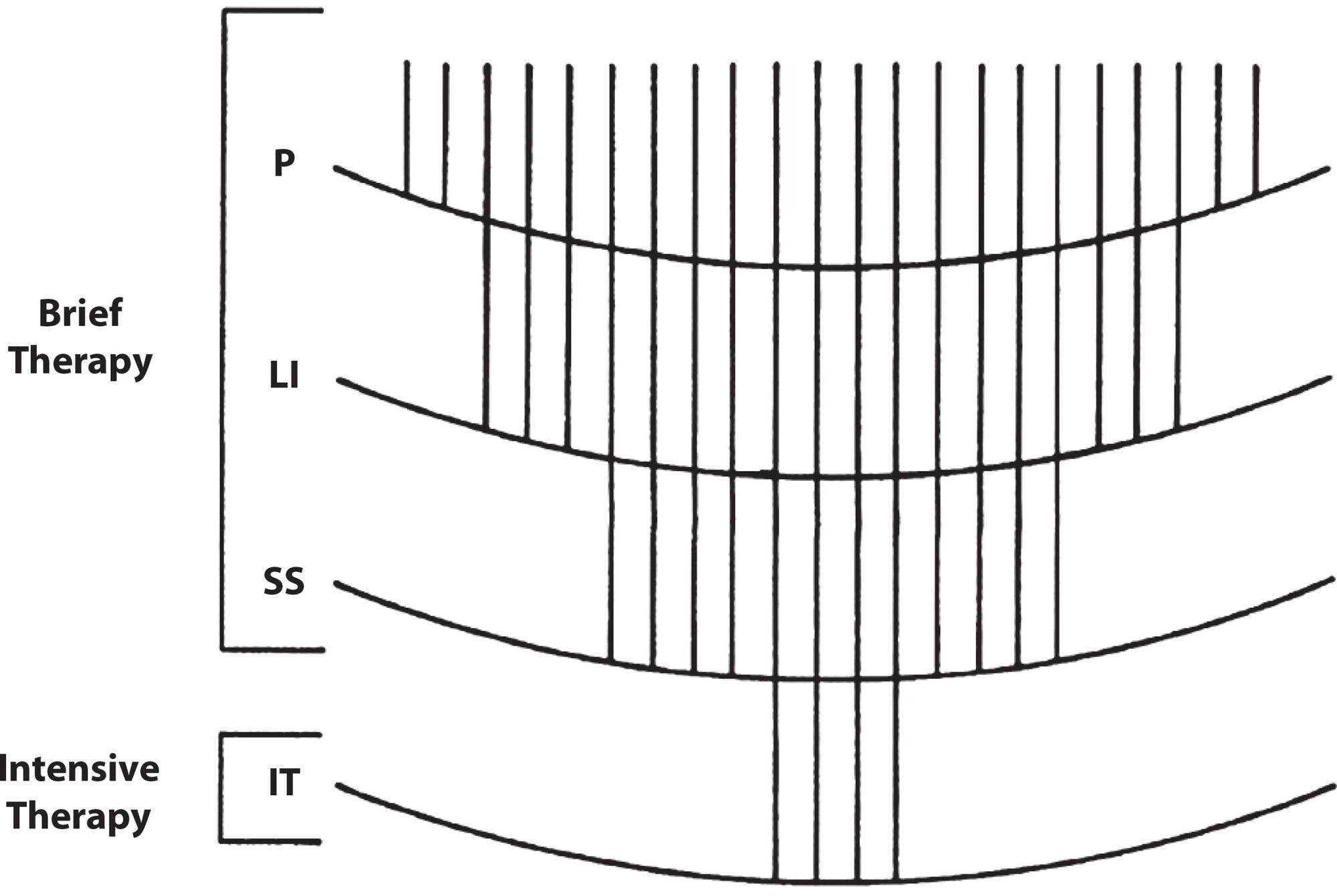
Search
Search in:
Nuvem de Tags
Adolescente (85) Atenção Primária à Saúde (239) COVID-19 (91) Criança (91) Cuidados de Enfermagem (269) Educação em Enfermagem (151) Educação em Saúde (139) Enfermagem (930) Enfermagem Pediátrica (86) Estudantes de Enfermagem (77) Estudos de Validação (131) Família (87) Idoso (208) Promoção da Saúde (99) Qualidade de Vida (104) Saúde do Trabalhador (86) Saúde Mental (145) Saúde Pública (82) Segurança do Paciente (150) Tecnologia Educacional (100)



